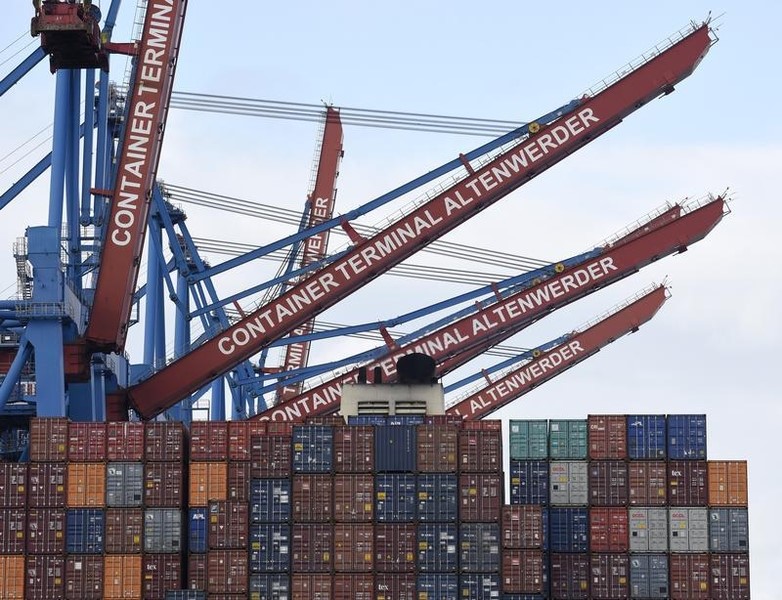(Bloomberg) -- Terms of Trade is a daily newsletter that untangles a world embroiled in trade wars. Sign up here.
German exports registered their steepest annual decline in three years in June, underscoring the plight of the manufacturing sector as global trade tensions escalate.
Shipments abroad were down 8% from the previous year, the most since July 2016. Imports, a gauge for the strength of the domestic economy, fell an annual 4.4%. Strains are also showing in France, where industrial production plunged in June.
The data add to evidence that export-reliant businesses are hurting badly, threatening to bring Europe’s largest economy to a halt. Once a growth driver in the region, Germany is forecast to expand a mere 0.5% this year, with only Italy seen faring worse.
There are few -- if any -- signs of imminent improvement. The U.S. and China, two of Germany’s key trading partners, remain locked in a war over import tariffs. The former recently announced its biggest hike in levies yet, prompting the latter to respond by allowing its currency to tumble to its lowest value in more than a decade.
Germany is caught in the middle. Big-name companies including Continental, Daimler, BASF and Lufthansa have slashed their outlooks in recent weeks amid global geopolitical uncertainty.
Economists at Commerzbank (DE:CBKG) predict China is on the cusp of a more fundamental shift in how it’s running its economy, with repercussions also for Germany and the euro area.
“There is much to suggest that China is taking the ‘Austrian’ path, accepting a protectionism-induced reduction in economic growth, and refraining from massively increasing the economic stimulus package which so far has had little effect,” Joerg Kraemer, Commerzbank’s chief economist, wrote in a note. The bank lowered its forecasts for economic growth in Germany and the euro area for 2020 to 0.8% and 0.7%, respectively.
Industrial production is already suffering across the region. In France, output dropped 2.3% in June from the previous month, the most since early 2018. In Germany, production registered its biggest annual decline in nearly a decade, and receding confidence indicators are feeding speculation that the economy may be headed for a recession.
Second-quarter data GDP data are due on Aug. 14, with economists surveyed by Bloomberg forecasting stagnation.
So far, the German government has been reluctant to react, arguing additional fiscal stimulus isn’t needed. This stance means the country’s current-account surplus, which has drawn criticism from U.S. President Donald Trump as well as the International Monetary Fund, will remain significant. It widened to 20.6 billion euros ($23 billion) in June.
European Central Bank President Mario Draghi said last month it’s “unquestionable” that governments will need to pitch in if conditions keep deteriorating. Policy makers have signaled that they could provide more monetary stimulus as soon as September.
(Updates with French industrial production starting in second paragraph.)
